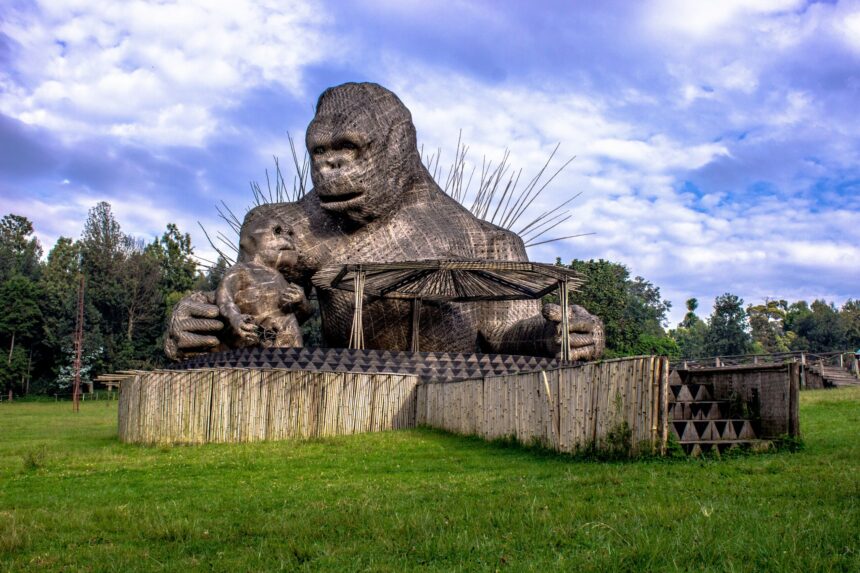Tourism is changing. People no longer want copy-paste vacations, tourist-packed sites, or scripted tours. They want something real.
They want experiential travel—a style that goes beyond taking photos. It’s about diving into cultures, doing hands-on activities, and making personal connections that stick.
Think staying with a family in Japan. Saving sea turtles in the Maldives. Making pasta with a nonna in Italy.
Here’s what experiential travel is, why it’s growing fast, and how you can try it on your next trip.
What Is Experiential Travel?
It’s travel where you do instead of just see. You get involved. You learn. You connect.
You help on a farm. Join a street festival. Cook meals from scratch with locals.
Core elements:
- Authenticity: Real moments with real people
- Immersion: Be part of the action
- Sustainability: Support the places you visit
- Personal growth: Pick up new skills and perspectives
This approach rejects mass tourism. It favors meaningful, off-grid moments that leave a lasting impact.
Why Experiential Travel Is Booming
Here’s what’s driving the trend:
a) Experiences Over Stuff
Millennials and Gen Z value stories over souvenirs. Airbnb says 74% of people would rather spend money on experiences than luxury goods.
b) Travel After COVID
Post-pandemic, people want connection. They crave purpose, not just checklists.
c) Digital Nomads & Slow Travel
More people live and work remotely. They spend longer in one place, soaking in daily life instead of rushing through.
d) Social Media Fuel
Instagram and TikTok made hidden gems popular. Travelers want unique, post-worthy moments—not just Eiffel Tower selfies.
e) Conscious Travel
People care about their impact. They want to give back, protect the environment, and support locals.
Types of Experiential Travel That Go Beyond Tour Buses
a) Cultural Immersion
- Stay with a host family
- Join local festivals (like Holi or Day of the Dead)
- Learn traditional crafts—pottery, batik, weaving
Example: Instead of just visiting Tokyo, stay with a local family, learn to roll sushi, and take part in a tea ceremony.
b) Culinary Adventures
- Pick ingredients and cook with locals
- Join cooking classes in homes
- Taste wine, cheese, or street food with small producers
Example: Don’t just eat pasta in Rome—learn to make it with a Roman grandma.
c) Nature & Adventure Travel
- Help conserve wildlife
- Trek with local guides
- Stay in eco-lodges
Example: Swap a safari tour for tracking rhinos with conservationists in Kenya.
d) Heritage & Ancestry Trips
- Visit places tied to your roots
- Stay in old villages or historic homes
- Attend cultural reenactments
Example: A traveler with Irish ancestry visits their family’s village and joins a Gaelic storytelling night.
e) Wellness Escapes
- Join yoga or meditation retreats
- Try forest bathing in Japan
- Unplug with no screens, just nature
Example: Instead of beach bars in Thailand, meditate at a quiet monastery.
f) Volunteer Travel
- Teach kids or share skills
- Rebuild after disasters
- Help with ocean cleanups or coral restoration
Example: Rather than just touring the Galápagos, help marine biologists protect reefs.
How to Plan an Experiential Trip
a) Look Beyond the Big Names
Skip Paris—go to Colmar. Trade Bali for Lombok. Smaller towns often offer deeper connections.
b) Use Local Platforms
Sites like Airbnb Experiences, WithLocals, or G Adventures help you book real interactions with locals.
c) Stay Local
Avoid chains. Try:
- Homestays
- Guesthouses
- Rural retreats
- Farm stays
d) Learn the Language (Just a Little)
A few local phrases go a long way. Apps like Duolingo or Pimsleur make it simple.
e) Slow It Down
Don’t rush. Spend longer in one place. Get to know it. Let it change you.
f) Shop & Eat Local
- Eat at mom-and-pop restaurants
- Buy handmade souvenirs
- Hire local guides
The money stays in the community—and you get the real thing.
Will Experiential Travel Replace Traditional Tourism?
Mass tourism isn’t going away. But more people want travel that feels personal.
They’re choosing:
- Custom trips that match their passions
- Eco-friendly options
- Real cultural exchanges
This shift is redefining travel. It’s not about ticking boxes—it’s about making memories that matter.
Travel Deeper, Not Just Farther
The best trips aren’t about how far you go.
They’re about how deeply you connect.
So next time you plan a getaway, ask yourself:
- Am I just looking—or truly experiencing?
- Can I give back while I’m here?
- What stories will I bring home?
Real travel isn’t just movement. It’s meaning.
FAQs
1. What makes experiential travel different?
You actively participate—instead of watching from the sidelines.
2. Is it more expensive?
Not always. Staying with locals or avoiding tourist traps can be cheaper.
3. Do I need a special agency?
Nope. But platforms like Intrepid or Airbnb Experiences can help.
4. Is it safe for solo travelers?
Yes. Connecting with locals often makes it safer and more enriching.
5. Can I try it in touristy places?
Absolutely. Even big cities have hidden corners and real experiences—if you look for them.

